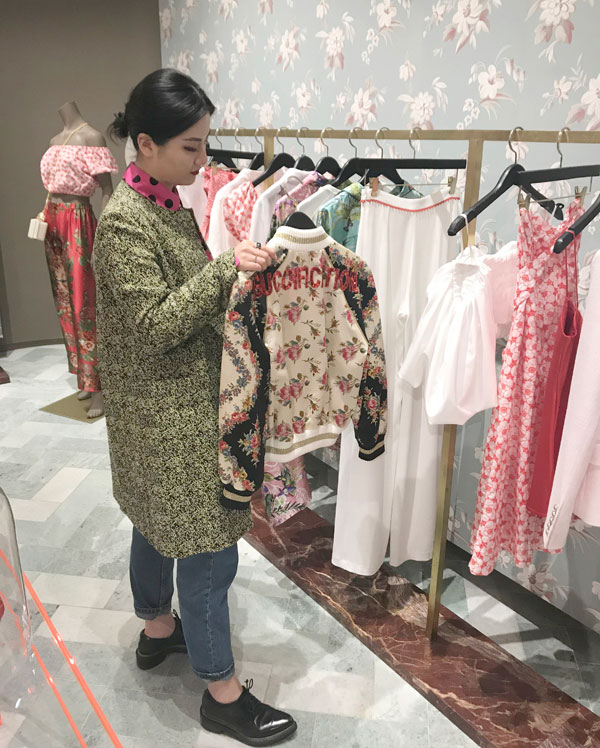Washington DC accuses China of deceptive trade practices, currency manipulation, industrial espionage and misleading the world on the origin and severity of the coronavirus. California doesn’t really care. It just wants Chinese shoppers to come back and start spending money.
Covid-19, aka the coronavirus, has disrupted economies around the world. Nowhere is the pain more acute than in LA, a Pacific Rim gateway and retail emporium for monied Chinese.
According to Ernest Wooden, Jr., president and CEO of the Los Angeles Tourism and Convention Board, L.A. “hosted almost 1.2 million Chinese visitors” in 2019. This makes China the top overseas market for Los Angeles tourism.
“Those 1.2 million people spent $3.2 billion in Los Angeles,” he says. “That’s one of the highest spend ratios that we have with any group coming into Los Angeles.”
Tourists from Latin America, Europe and Japan come to Southern California for Hollywood studio tours, Orange County theme parks, museums, athletic events and the beach. Chinese come to shop. Indeed, last year China’s shoppers made 70% of their luxury purchases abroad or in Hong Kong.
The irony is that nearly all the designer luxury items Chinese buy overseas are made and sold in China. Taxes more than double the cost, however, making it much cheaper to shop in Europe and North America even after airline and hotel expenses are added. A Louis Vuitton Speedy 25 handbag currently costs 46% more in Shanghai than in an American or European boutique. Labels like Birkin handbag maker Hermés and trench coat specialist Burberry were making more than a third of their worldwide sales to consumers from China before the coronavirus became a global pandemic.
As recently as last Christmas dozens of Chinese travel agencies in Los Angeles offered tours where up to 20 visitors from mainland China would climb into a bus and spend the day moving from mall to mall. Smaller groups traveled in luxury SUVs. Shops with Chinese sales personnel welcomed the tours with green tea, rice cakes and effusive bonhomie since the average Chinese tourist spent $6,000 during his LA vacation.
For travel agencies, many of whom served up to 30,000 Chinese visitors a year, it truly was a golden age, made even more lucrative by the fact that the stores they visited paid a 2% to 5% commission on the items they sold.
Alas, today nobody is flying anywhere. Los Angeles International is the busiest airport on the Pacific Coast of North America. In a normal year, 7% of its international traffic comes from China, but this year traffic at the airport is down 95%.
Some of the people most adversely affected by the decline in international trade and travel are overseas personal shoppers, known in Mandarin as “daigou agents.” A 2015 report from Bain & Company, a Boston-based consultancy, found that 70% of luxury brands bought by Chinese were purchased abroad or through daigou agents, who in California are mostly Chinese American women. The estimated market value of those goods at the time of the study was $7.7 billion to $10.5 billion.
According to Yingjie Wang, a writer for LAist, daigou agents until recently worked full time looking for bargains in department stores like Bloomingdale’s, Nordstrom, Macy’s, Costco and discount malls. Most have 700 to 1,000 clients for whom they shop for a fee, filling 200 to 300 orders each month. When the Mandarin-speaking daigou shopper finds the desired product at the right price she sends a text back to China on WeChat along with a cell phone photo.
“Under good circumstances,” one personal shopper told Wang, the “price for certain brands can be as low as half or even one third of the price in China.” The cost differential is so great on products like makeup, handbags and dietary supplements that agents can mark up the prices and still offer a significant saving to their customers.
Travel agents and personal shoppers are scrambling for revenue today, but most predict life soon will return to normal. Some business analysts predict a wave of “revenge spending” by Chinese consumers angry over their lockdowns. By 2025, Bain consulting predicts that up to 49% of global luxury sales will be made by Chinese shoppers.
David DeVoss is the East-West News Service editor.


